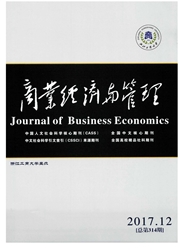

 中文摘要:
中文摘要:
文章以中国A股市场2004-2011年(实际的财务数据区间涵盖了2004年到2014年共11年)发生亏损的965家上市公司为研究样本,基于中国日益频繁出现的政府补助企业的现实背景,结合亏损上市公司特征对高管政治资本、政府补助与亏损公司未来价值三者的关系展开较为深入的研究。研究发现,对于亏损公司而言,政府补助行为很普遍,但是获得政府补助(高政府补助金额)对亏损公司未来价值具有抑制作用,亏损公司并未对政府补助这一资源加以正确有效地利用,整体配置效率偏低;高管政治资本在一定程度上增强了政府补助对亏损公司未来价值的抑制作用。
 英文摘要:
英文摘要:
In this paper using a sample of 965 Chinese A-share listed firms suffering from loss for the period of 2004 -2011, considering the increasingly frequent Chinese government subsidies, we started an in-depth study of the relationship among the executive political capital, government subsidies and the loss companies' future value, We found that for the loss company, government subsidy is normal, but government grants ( large amount of government subsidies) have a negative effect on the future value of the loss company. Many loss companies do not use the government subsidies efficiently and the overall configuration efficiency is low. The executive political capital, to a certain extent, enhances the inhibitory effect of government subsidies on the future value of loss companies.
 同期刊论文项目
同期刊论文项目
 同项目期刊论文
同项目期刊论文
 期刊信息
期刊信息
